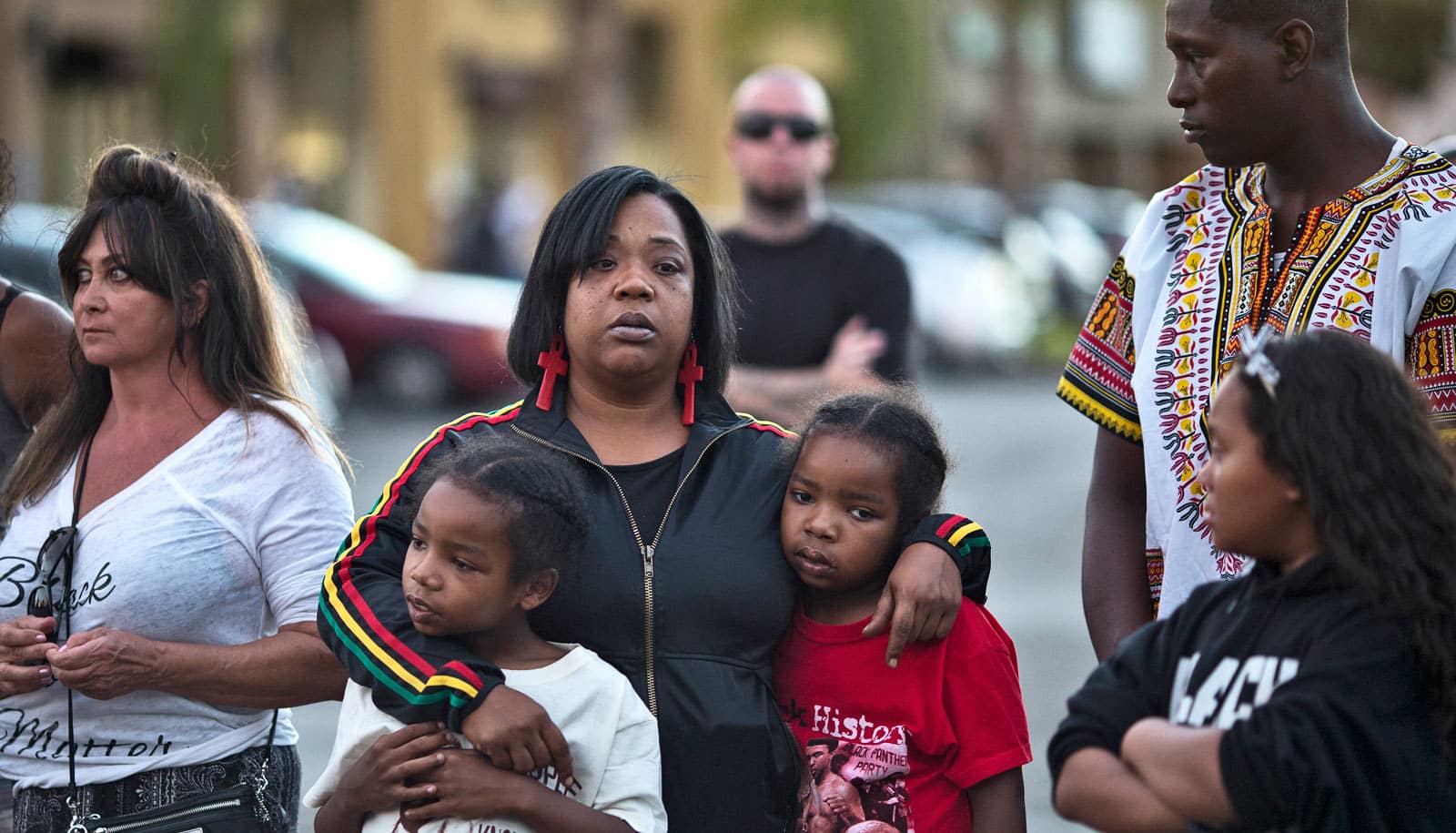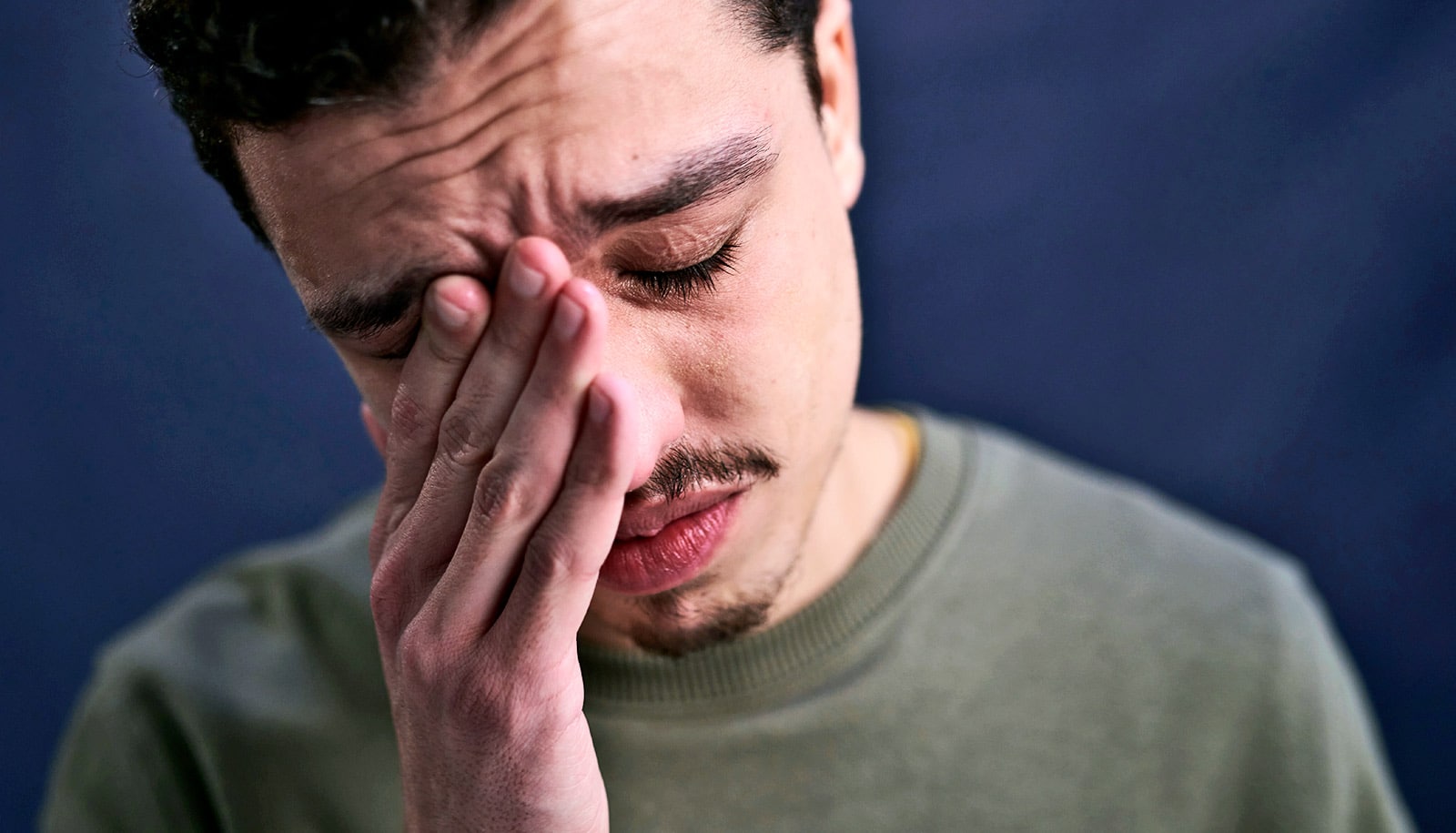Black Americans are nearly three times more likely to be killed by police than whites, a trend that is harming the mental health of the black community, a new study shows.
“These deaths don’t just have immediate consequences for the families and friends. There’s a true mental health spillover effect for those not directly involved,” says Atheendar S. Venkataramani, an assistant professor of medical ethics and health policy in the Perelman School of Medicine at the University of Pennsylvania and co-lead author of a paper in The Lancet.
Structural racism: policies, laws, practices, and other norms entrenched in institutions that can harm a certain racial group and perpetuate racial inequities.
In a national survey of nearly 40,000 black Americans who participated in interviews within three months following at least one death of a black American at the hands of police in their state, researchers found that police killings of unarmed black Americans were associated with worse mental health among other black Americans in the United States general population.
“Addressing this problem will require interventions to reduce the prevalence of police killings as well as programs that mitigate the adverse mental health effects in communities when these events occur,” says co-lead author Jacob Bor, an assistant professor at the Boston University School of Public Health.
“More broadly, the findings indicate that events widely perceived to reflect structural racism cause significant harm to the mental health of black Americans. Efforts to reduce health disparities should explicitly target structural racism.”
Structural racism is described as policies, laws, practices, and other norms entrenched in institutions that can harm a certain racial group and perpetuate racial inequities.
The researchers combined newly released data on police killings between 2013 and 2016 from the Mapping Police Violence Project database with data from the U.S. Behavioral Risk Factor Surveillance System (BRFSS) of over 103,000 black Americans. BRFSS is a nationally-representative, telephone-based, random-digit dial survey of adults ages 18 years and older.
The primary exposure was the number of police killings of unarmed black Americans occurring in the three months prior to the person being surveyed. Exposure included word of mouth and news stories in print, radio, television, and/or social media.
To measure mental health outcomes, the researchers asked respondents: “Now thinking about your mental health, which includes stress, depression, and problems with emotions, for how many days during the past 30 days was your mental health not good?”
Researchers then compared the number of poor mental health days experienced by black Americans surveyed after a police killing of an unarmed person to that of black Americans residing in the same state surveyed before that event.
Overall, the study suggests the police killings could contribute 1.7 additional poor mental health days per person ever year, or 55 million more poor mental health days every year among black Americans in the United States. To contextualize those numbers, the authors point to diabetes, which is responsible for an estimated 75 million poor mental health days among black Americans.
“Our estimates therefore suggest that the population mental health burden from police killings among black Americans is nearly as large as the mental health burden associated with diabetes,” they write.
The study shows, for the first time, that police killings of unarmed black Americans have a “meaningful, population-level impact” on the mental health of other black Americans.
“The effects are likely even larger than what we estimated,” says Venkataramani, pointing to the fact that more high-profile cases of police killings that grabbed national media attention could have exerted mental health effects among black Americans living in other states, as well.
How to use stats to fight racial inequality, not support it
Importantly, the researchers saw no spillover mental health effects among white respondents, nor among respondents of either race in response to police killings of unarmed whites or of armed black Americans.
This striking specificity points to the importance of structural racism as a key mechanism underlying the study findings, and a driver of population health, more generally.
60% of black women killed by police were unarmed
The authors say: “[P]olice killings of unarmed black Americans are perceived by many as manifestations of structural racism and as implicit signals of the lower value placed on black lives by law enforcement and legal institutions—as well as by society at large.”
Additional coauthors are from the Harvard T.H. Chan School of Public Health, and Massachusetts General Hospital.
Source: Penn



